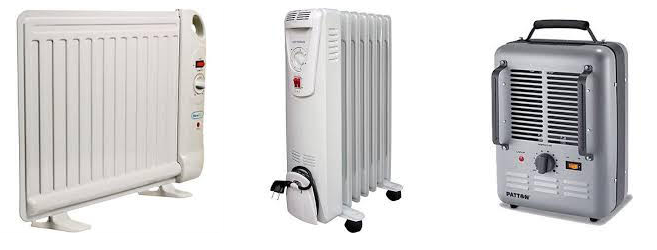
Five years ago I posted INSTRUCTIONS TO “BAKE OUR” TOXIC FUMES, which originally appeared in my now-out-of-print book Home Safe Home. Many readers since have used this method of heating rooms to make chemicals from paints, finishes, and other building materials outgas more quickly.
I’ve done this many times over the years, like when I would paint a room before there was no-VOC paint. I would just put my oil-filled radiator space heater in the room, close the door, leave it overnight, and in the morning open the windows and that was all that was needed.
Occasionally someone would call me and say I need more heat. How hot does the room need to be? I tell them to rent “an industrial heater.” And they do and it worked.
A couple of weeks ago I received an email from a reader saying the method wasn’t working for her. She heated up her space, even individual rooms, and the smell wasn’t decreasing.
We’ve been trying to figure out what she should do and the only thing I can come up with is “more heat.”
But she was’t able to find a heater.
I went out to look for heaters as well.
If you have done a bake out and needed more heat than ordinary room-size space heaters, please leave a comment and let us know what type and size heater you used and where you got it. Please be as specific as you can.
Here are some things I learned.
There are three key numbers to understand when looking for a heater: watts, volts and BTUs.
Watts are the amount of energy you need to power the heater.
Volts are the amount of energy coming out of an electric plug. An ordinary house electric plug is 110 volts. Some plugs, such as those for electric clothes dryers and electric stoves, are 240 volts.
BTUs are the measure of heat that is produced by the heater.
To get enough heat for a bake out, you need to use a heater (or heaters) to provide enough heat for the size of the room. The general rule of thumb is you’ll need roughly 10 watts of heating power for every square foot of floor area in the room. So a 1,500-watt heater can be the primary heat source for an area measuring up to 150 square feet (that’s 10’ x 15’).
My oil filled radiator heater uses a 110 volt plug, can be set to produce various amounts of heat up to 1500 watts, which is enough to heat 150 square feet.
This article is very thorough about different types of heaters and how to choose one for energy efficiency, but it will also help you understand types of heaters for bake outs: SYLVANE: Heater Buying Guide
One problem my client is running into is that she has an open plan of 600 square feet, so that would require the equivalent of four 1500 watt heaters.
A problem I run into is I am usually living in older houses with older wiring and I blow out the circuits.
I did find an electric heater at an equipment rental place that runs on a 240 watt plug, but my client’s stove is gas and she doesn’t have a clothes dryer, so she doesn’t have the plug. And it’s for professional use only.
OK that’s all I’m going to say on this.
Anyone have any knowledge or experience about heaters?
Let’s figure this out together so we have this data here.




I have used the style on the far right. It is an metal/enamel and not plastic. Along with what ever electric heat is in the room.
I would like to add a caution. People may reach for oil filled heaters, which will not be a good choice it you are severely MCS. There seems to be a certain out gassing goes on, even though the oil is contained for me.
As well, it could be the outside casing out gassing as it heats. This goes for any portable heater. So I always try to use an older heater, picked up second hand or borrowed from relatives.
Yes the paint on the oil-filled heaters will outgas for about a year. Once that is over, the oil inside does not outgas and they are very good heaters. I’ve had mine for about 30 years. I think someone should start a business outgassing these heaters, but we shouldn’t have to do that. The company should sell them already cured.